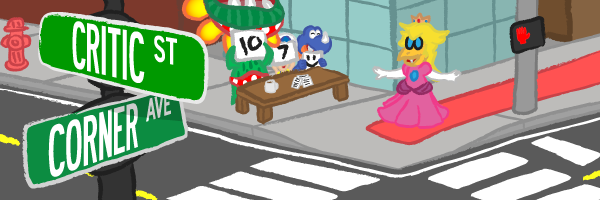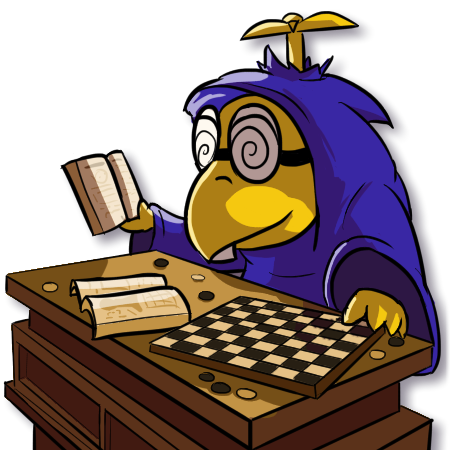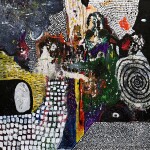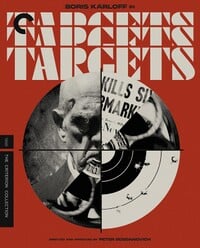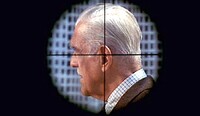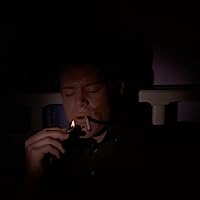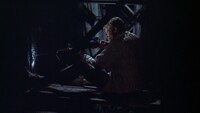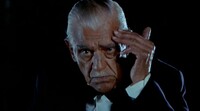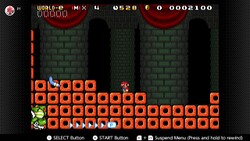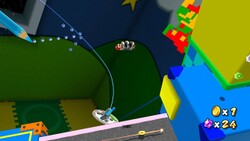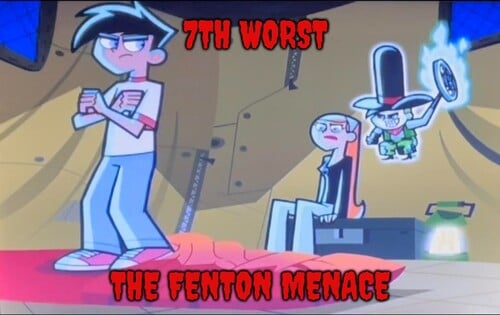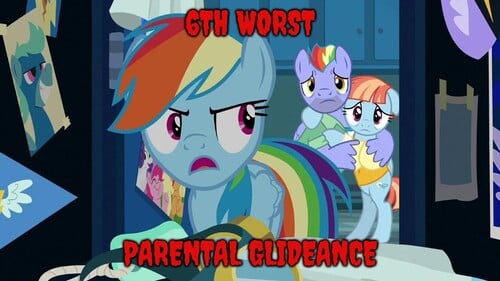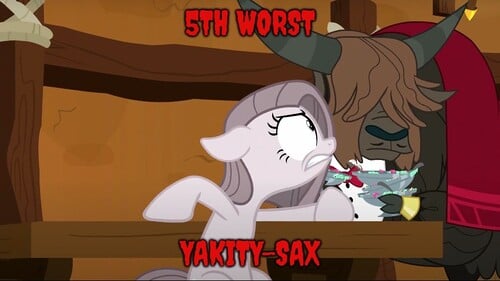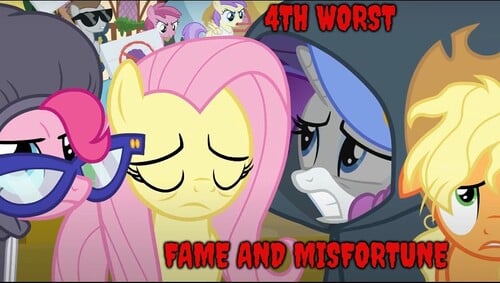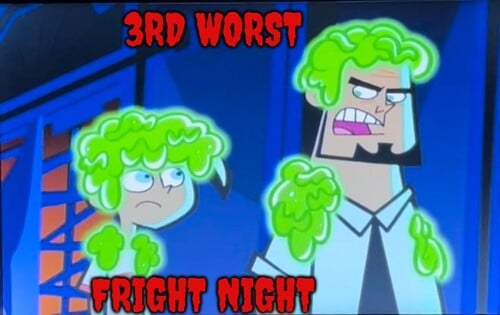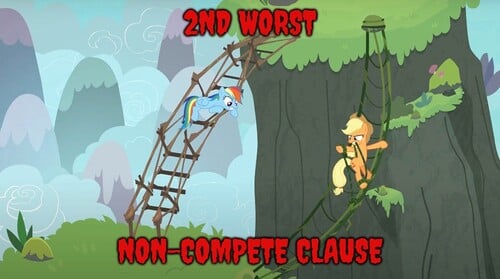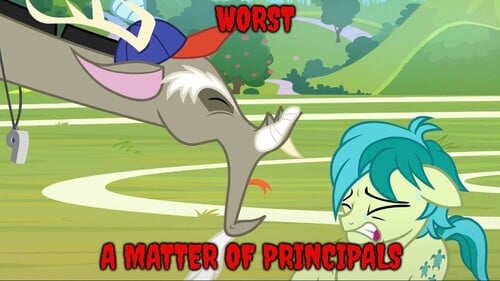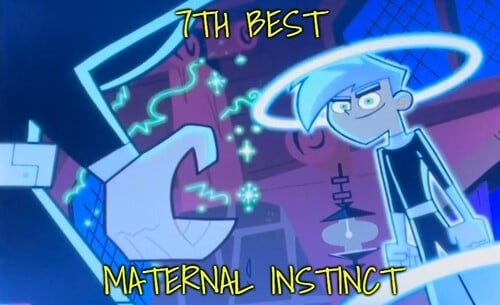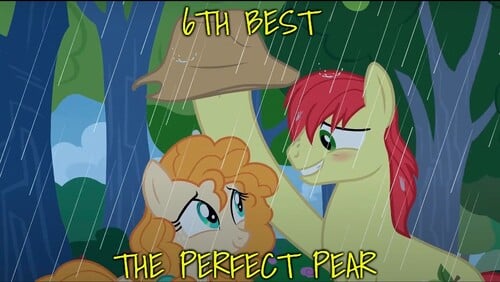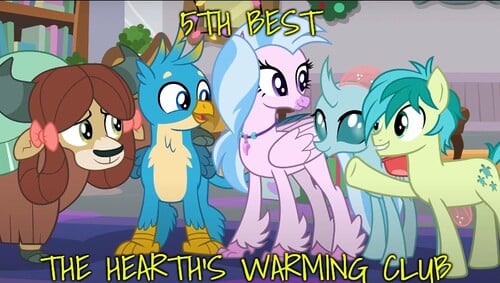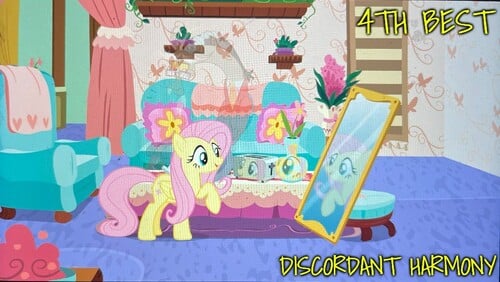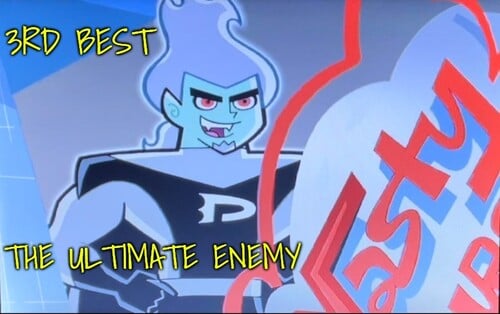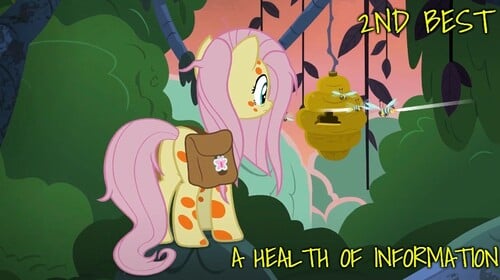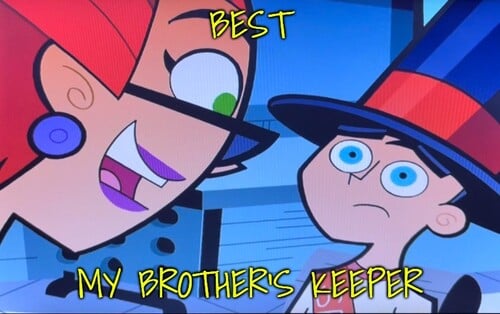The 'Shroom:Issue 196/Critic Corner
Director's Notes
Written by: Hooded Pitohui (talk)
Hello there, all of you readers of The 'Shroom! I'm sure you weren't expecting to see me here, unless you clicked in from the main page and saw my name in the box for Critic Corner, that is, but I'm finally fulfilling my Toady duties and filling in for a Magikoopa.
In seriousness, though, Anton had a bout of illness this week, so I'm here to keep his fun-and-tasteful swirling office chair dusted and to keep the Chex Mix supplies stocked while he's out. Unfortunately, this also means there is no Half-Baked Reviews this month, as, as Anton explained, he didn't have the opportunity to do all of the fine-tuning that consistently goes into his reviews. You can expect Half-Baked Reviews to return next month, along with Anton, right back here in this spot, though, so mark your calendars for our August issue (August 19th)!
For this month, though, Critic Corner still has an assortment of reviews for you to enjoy! A Report on the Effectiveness of Power-Ups is back alongside Critic Corner staples like Graphic Novel Review and 'Shroom FM. In addition, we have a one-off guest submission from The Shadow Prince (talk), bringing his Episode of Episodes, a review and ranking of his favorite and least favorite episodes from two cartoons. Go on, read, and enjoy!
Before I leave off, though, I'll share Anton's usual regular announcements, as well:
We've decided to implement in Critic Corner something similar to News Flush over in Fake News, where no formal sign-up application process is required for one-time or limited sections. From now on if you just want to send in a single review for something you just read, watched played, tried, whatever, you just have to send me your review privately either to me directly in chat, or in a message to me on the forum at least one week before each 'Shroom is to be released! There's no commitment or obligation to provide a full monthly section (although you absolutely can shift it into one if you so choose), just send us your thoughts on a thing and we'll feature it here! If you have any questions or curiosities about this, please feel free to ask!
As always, if you would like to help Critic Corner, we always have openings for more writers! You are free to write for sections such as Character Review and Movie Review, or really anything you'd like to do! There's no pressure to have a huge section; they can be shorter and concise! The application process is very simple, starting with reading the Sign Up page, and sending your application to Meta Knight on the forum. Any idea you have is welcome, and if you have any questions or need help signing up, please feel free to reach out to myself or other 'Shroom peeps!
Section of the Month
Thank you all for voting Half-Baked Reviews and part two of the Buc-ee's review as last month's Section of the Month! It sounds as though the white fudge Beaver Nuggets are best avoided, doesn't it? Keep on voting and showing your support to our writers!
| CRITIC CORNER SECTION OF THE MONTH | ||||
|---|---|---|---|---|
| Place | Section | Votes | % | Writer |
| 1st | Anton's Half-Baked Reviews | 17 | 80.95% | Hypnotoad (talk) |
| 2nd | Van Shoeul's House of Ghouls | 4 | 19.05% | Shoey (talk) |
'Shroom FM
Written by: MrConcreteDonkey (talk)
Hello!! Welcome to 'Shroom FM!! You may have noticed that this section was absent last month. Sorry! This wasn't because I was moving into a new flat and didn't have much free time, BUT actually because I was Censored by The 'Shroom because I refused to write about "film" (a much less cool medium) for the special issue.
bdrmm - I Don't Know
I had heard of this band before going into this, but had no idea what they sounded like. I assumed the name "bdrmm" was meant to phonetically be some kind of loud noise, and the music to therefore be loud and noisy. Turns out it's a bastardised version of the word "bedroom", so I was way off. It's standard shoegaze-y dream pop, really. Spacey and echoey and laid back, nice and atmospheric. Unfortunately, it's a bit boring. On my first attempt listening to this, I had to restart about halfway through because I'd forgotten I was listening to it - and the second listen through when I was trying to pay more attention didn't go well either. The first track is likeable, it builds up the energy quite well, but practically everything from there up until the middle of the album just fades into the background. "We Fall Apart" in particular is very hard to get through - the first three minutes are very low energy and it's so slow to develop - then when it gets to a new part of the song, after a few moments it just ends up going back to what it was doing before. Luckily, the last three tracks do improve things a bit, things start to feel a lot less static - the last track does go on slightly too long, but it manages to keep the interest up. The atmosphere definitely works but the songs need to stand out more.Geese - 3D Country
On the other hand, 3D Country has the exact opposite problem to I Don't Know. I thought this was really cool when it started, "2122" is a very fun and outlandish opener, the band are just throwing so many different sounds and ideas out there. The vocalist stands out in particular, his performance is really versatile. But after a few tracks, it feels like the wild and unique ideas run dry and it just... peters out towards the end. For the whole second half, "Mysterious Love" is the only song that really lives up to the promise it sets in the first half - and the rest of the songs aren't bad, but just do very little. They've got a great sound, but it feels like trying to stretch it to the length of a full album has caused the best parts of it to get a bit lost.Jessie Ware - That! Feels Good! ⭐
I mentioned this all the way back in 2021, but Jessie Ware's 2020 album, What's Your Pleasure?, impressed me a bit when I first listened to it - but then, upon going back, I'd already gotten a bit tired of it. It's definitely a faithful homage to disco, but faithful to the point where it starts to feel a bit derivative as a whole, despite the tracks being individually strong. Thankfully, That! Feels Good! is a big improvement in that regard - it's more bold and has a lot more personality to it than its predecessor. It's very much a continuation of the sound of What's Your Pleasure? but everything feels like it's been ramped up massively, particularly the themes of sensuality and indulgence, and it benefits a lot from that. As with the last album, I'd heard a lot of the songs here on the radio often - and to be honest they didn't do much for me at the time - but listening to them in context, there's some cool touches you might not pick up on if you're not actively listening. Production is immaculate; Ware's vocals are sublime, and sound really lush when they blend with the backing vocals. Very fun, fresh album.
Van Shoeul's House of Ghouls
Written by: Van Shoeul (talk)
Good evening, dear readers and, welcome to another terrifying Van Shoeul's House of Ghouls. I'm your guide through the darkness, Vincent Van Shoeul. Last month, we featured The Return of Camp Yorga, a traditional vampire B-movie from that old favorite, American International Pictures. For this month's little picture, we shall be featuring perhaps our most harrowing story yet, 1968's Targets, a two-pronged tale of acting retirements and a serial shooter. Before we begin, I must warn you that the subject of tonight's tale might be a little too real for some viewers. So I warn you, this is your last chance to turn back away from the horrors that await. But for those of you who stay, I can assure you it will be a thriller.
For this month's featured performers we have: Nancy Hsueh as Jenny, Byron Orlok's loyal secretary, torn between staying with her lover in America or going to England with Byron; Peter Bogdanovich as Sammy Michaels, a scriptwriter who thinks he has the perfect project for Byron Orlok; and im O'Kelly as Bobby Thompson, a seemingly mild mannered insurance salesman who snaps and goes on a shooting spree. Finally, we have legend of horror Boris Karloff as Byron Orlok, An aged legend of the silver screen who, after deciding to retire after finding himself unsatisfied with the roles he's getting, decides to make one final public appearance before returning to his home country of England.
Directed by Peter Bogdanovich, it was by chance that Targets was made at all. Peter Bogdanovich got his start as an assistant on Roger Corman's The Wild Angels, an outlaw biker film. Then, as luck would have it, horror icon Boris Karloff still owed Roger Corman a few days worth of work, and Roger Corman basically told Peter he could make any film he wanted as long as it went under budget and starred Boris Karloff. Loosely inspired by the 1966 University of Texas Tower Shooting, Targets is a unique film, because it's really almost two different films with two separate narratives that intertwine during the climax. One part of the film is about Byron Orlok (Boris Karloff), who is basically a fictional version of Boris Karloff, an aging horror legend who abruptly decides to retire from acting as he finds that his style no longer works in the modern acting world. The other is about Bobby Thompson, a seemingly normal Vietnam veteran who snaps, seemingly under the normalcy of life, and begins a killing spree armed with his sniper rifle. It's very interesting because it's essentially two different movies with two different tones that only occasionally intersect.
Now you'd think that this tonal change would negatively impact the movie, but it really doesn't! At the end of the day, both stories are just so well told that they're both compelling, but we'll get into more specifics as we go. I also think the way that they interact with each other is fascinating. The first time they interact is at the very beginning, when Bobby aims at Byron with the scope of his gun by pure coincidence.
He's at a gun store simply testing out a sight and Byron just happens to be leaving the building across the street. Even the way the two films finally intersect is pure coincidence. Byron, who is retiring, decides to make one last public appearance at a drive-in theater. Then it just so happens that Bobby prolongs his killing spree by killing the projectionist at the drive-in and by shooting people from inside his booth. But by far the best way they work together is a simple scene transition. Byron and scriptwriter Sammy Michaels (played by Pearl himself!) fall asleep drunk in the same bed (nothing sexy happens sadly) The scene then transitions to the same night, with Bobby sitting alone in the darkness and lighting a cigarette. It's fucking great!
The way Bobby's murder spree starts is excellent cinematography. It doesn't even start with the first murders; it really starts in the scene right before, when Bobby's wife comes home from her job as Bobby is sitting in complete darkness, lighting a cigarette. His wife tries to talk to him (he has earlier tried to get her to stay home from her job, but she refused), but, by this point, his mind is already made up. The next scene is in the morning, with him typing a letter on a typewriter (the word he's shown typing is "Die" in red font). His wife comes in to give him a kiss and he shoots her. Then he shoots his mom when she comes to investigate. Finally, he kills a delivery boy who just had the bad luck of being there. All of this is silent. There's no overdramatic yelling from the family. Bobby isn't howling like a maniac. He's stone silent as he murders his family before hiding their bodies, and remains that way when he's driving off, the scene ending as the camera pans in on a note written in red ink.
The Bobby character, prior to starting his murder spree, is such an interesting character because he starts off so normal. He starts off hanging out with his family, telling them about how he saw horror icon Byron Orlok while leaving the gun store. You get scenes of him doing normal stuff like watching TV with his family, target shooting with his father, really just normal everyday stuff. But slowly the facade begins to break. There's a scene of him almost begging his wife not to go to work for the night as he's beginning to lose himself to his dark thoughts, but she refuses, not knowing the trouble that he is going through.
Then, by the time she returns home, she finds him sitting alone in the darkness. He has already given into the dark urges and she just goes to bed none the wiser. After the murders, the Bobby character continues to be unnerving, not just because he's a killer, but because, even after his psychological break, he's still capable of acting so normal. Case in point, immediately after killing his family, he goes to a local gun store to get more ammo. The people in this gun store know his family and Bobby just has a casual conversation with them. It's unnerving how he can just have a casual conversation after committing such a crime and while planning to do more.
The other side of the film is so different tone-wise and is full of masterclasses in acting by Boris Karloff. It's all about how Byron is retiring because he doesn't think his style of horror really works for modern moviegoers and he's tired of playing bad parts in bad B-movies. There's a great scene where Byron recounts his career, expounding on how his pictures used to be considered the scariest things in the world, but now they're looked at as campy affairs. But Byron has been playing them for so long he doesn't feel he can do anything else. Not only that, but it's clear from the start that the roles he's getting at this point aren't great roles, and that he's basically been reduced to starring in movies that really are campy B-style films. It's clear that Byron wants to be thought of as an actor and not a B-movie horror guy, but that he knows he'll never be thought of as anything else. It's also not just that these are bad parts (although, it is implied that the script he chose not to read and turned down at the start of the film is actually really good), it's that he doesn't think he can be scary in this modern world. It's a parallel to the real world, much like a lot of the film, where that old style of traditional monster movies are being replaced by more slasher/spree killer films. (This is not some brilliant Shoey analysis, by the way. It's kind of just me stating what's been written elsewhere.)
So part of the reason I think Boris Karloff is so good at the role is because, by this point, Boris has been acting for fifty years and was perfect as a leading horror man! But also it's because he's basically playing a fictional version of Boris Karloff. Boris Karloff was a horror icon. I mean, he was the original Frankenstein! Then, much like his character in the film, when that original golden age of horror ended, he was reduced to bit parts or the leading bad guy in campy low budget B-movies. Like, Boris Karloff basically spent the 1950s appearing as a caricature of himself in small B-movies. So this role is personal to him, because he's basically playing himself! This would be Boris Karloff's last major film and the last film to release before his unfortunate death, but it's a great performance and a tremendous sendoff to an absolute icon of horror acting.
One of my favorite of the Byron Orlok scenes comes right after he agrees to make one final appearance at this drive-in. During the planning process at his house, Byron is just completely done with the shock jock they've sent to interview him, a man by the name of Kip Larkin (Sandy Baron). Kip is supposed to be like the stereotypical 1960s groovy, hip-to-the-scene (as the kids would say) radio host, peppering his dialogue with classic 60s slang. Kip Larkin insists on asking just the dumbest questions possible, such as "How do you like being in motion pictures?" and "What is your next flick going to be?". The best part of this character is how obviously confident he is in these questions, even as both Byron and Sammy are visibly disgusted by them. Even after Byron and Sammy decide to just move past these terrible questions, Kip is still talking about them. It's a good example of a lighthearted moment of humor in these films, and then it leads to maybe the best scene in the movie. Byron decides that, at this upcoming appearance, he's going to tell a scary story, because he wants his last public appearance to be grand. He then breaks into a stirring rendition of the tale Appointment in Samarra. It's a one-take performance so brilliant that, much like Peter Lorre's monologue in M, I can't do it justice, so I'll just leave a link here.
The climax of the film is absolutely fantastic and is the perfect intersection for the two films combined into this movie. Taking place at a drive-in during a showing of Boris Karloff's The Terror, which was chosen as part of a complicated deal where Roger Corman agreed to fund Targets if it featured like twenty minutes of The Terror, it weaves the narratives together well. It's a perfect sequence with Bobby, who has hidden inside the screen tower itself, just picking people off, helped by the night and the fact that all the cars have sound boxes.
One of the coolest shots is the first kill, when he shoots a man inside of a phone booth, causing the glass to shatter around it. As some people realize what's going on and desperately attempt to warn other patrons to turn their lights off and keep down, they also have to trying to avoid any movements that will reveal their positions to the sniper. It's a chaotic scene of people being shot while others try and flee in their vehicles, which just causes gridlock, making it even easier for Bobby to pick people off. Probably the most gutpunching moment is when the camera pans into a vehicle with a crying child, which is followed by the camera panning over to his father, dead with a bullet in his neck. It's a great scene that's really harrowing because it's fairy realistic. This is probably what would happen if somebody did this at a drive-in. It also ends with one of the best parts of the film when, after Bobby, who has at this point left the tower in an attempt to evade the police, ends up nicking Byron's secretary Jenny (Nancy Hsueh), causing the unarmed Byron to try and stop him.
It turns into a very creative sequence where Bobby misses a shot on Byron, then he turns back around and, at this exact moment, the film being played at the drive-in is airing a scene of Boris Karloff menacingly pursuing somebody. This breaks Bobby's mind, and he begins to fire wildly at both Byron and the on-screen Boris until he runs out of ammo and the old legend Byron beats him down. The film ends with the police arresting Bobby as Byron looks on, asking if that's what he was afraid of.
Targets was sadly not successful at the box office, not even a little bit! It was probably a little too far ahead of it's time and it was probably a little too similar to events that were happening at the time. It's a very good film, though, and it does a a good job of telling two different stories in parallel. It's also a perfect send off to Boris Karloff's legendary career. Of the two storylines, I think the Bobby storyline is the more interesting, but the Byron story has the better character moments. The challenge with the former is that Bobby starts off with neat scenes on the road to his breakdown, but, once he breaks, he's just a spree killer at that point. He kind of ceases to be a character and instead becomes more of a horror murderer character. But his stuff is well done. Case in point, the choice to not use music in his scenes, instead only having what would occur in the background, such as factory sounds or the sounds of The Terror, adds a lot to his scenes. It's a great performance as he shifts back and forth from being a seemingly normal man in the parts where he's doing things like buying guns or a ticket to the drive-in to a silent, almost emotionless, sniper as he mows down people for seemingly no reason. On the other side, the Byron stuff gets a lot of points because of Boris Karloff's performance, but that doesn't change the fact that it's a bit slower compared to the more psychologically-driven murder scenes.
In addition, there's some fluff that I don't think needs to be there, like a whole plotline of Jenny, who is dating scriptwriter Sammy, having to decide if she should go back the England with Byron or stay in America with Sammy. I just don't care about it! So I think the Bobby stuff is the better half, because I think it's more interesting the the Byron stuff, partly because, again, I'm giving a lot of points to Boris Karloff. If Boris Karloff wasn't in that role (unless he was replaced by Vincent Price) I wouldn't like it anywhere near as much, because, although the Byron stuff is good, I don't really care about the other pieces in that storyline.
I do have to commend the film for pretty seamlessly connecting two stories that, on their face, have nothing to do with each other. I don't feel the ending is contrived nonsense, rather, it all seems like something that, while coincidental, could still logically happen. The film does a great job of merging its plotlines together for a satisfying climax.
That will conclude this month's little tale. The moral of our little adventures? Why, isn't it obvious? "Drive-ins died out for a reason." That's all for this month's tale. I'd like to invite you all to join us next month for another frightful tale in Van Shoeul's House of Ghouls.
Graphic Novel Review
| Indiana Jones Adventures, Volume 1 | |
|---|---|
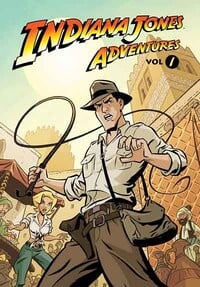
| |
| Author | Phillip Gelatt |
| Release date | 2008 |
| Genre | adventure |
| Pages | 80 |
| Available From | |
Welcome back, everyone, to a new edition of Graphic Novel Reviews! This month, I've dug into my library for a classic from my shelves, Indiana Jones Adventures, Vol. 1!
Indiana Jones has always been one of my favorite series, and Raiders of the Lost Ark is on my top 10 list for movies. I wish that more movies could be made like it- a movie that's basically a puzzle with action and adventure. The National Treasure movies are also some of my favorites, and some of the Lupin III movies scratch that itch, too, though, so I suppose I should be thankful. Anyways, I picked these up when I was quite a bit younger- I'm honestly surprised I haven't talked about them here beforehand. There are two books under the "adventures" title, but this review will focus solely on volume 1. I figured it would be topical with the new movie just out.
Volume 1 is set, as many Indiana Jones adaptations are, during the Nazi regime. 1930, to be precise. We open in Sweden, during a blizzard. Indiana Jones and Marcus Brody are on the hunt for artifacts, and inside a dig site, Indy runs into an archaeologist from the British museum who is also after whatever treasure lies within. The two of them continue into the cave to see what they can find, and in the thick of skeletons, cobwebs, and rickety bridges, she double-crosses him and leaves him in the dark, taking the ancient ring they found with her. Indy manages to get out of the closed-off site are returns to Marcus with his own loot, but when the Nazis rear their ugly heads, Indy finds something much more valuable than the ring is up for grabs!
Apologies for the short summary, but this is a short book- if you read my template to the right, it's only 80 pages long! In the summary for both Amazon and Thriftbooks, it was noted as a "kid friendly" adventure, and they're not lying. There are no dramatic gunfights, no spicy scenes, and not a whole lot of puzzle solving. So what's the big draw of this book??? Well, honestly, for me, it's the art. The art is lovely, and I adore this artist's style. It kinda reminds me of late 90s/early 2000s DC art, specifically the Adventures titles (coincidence??), such as Superman Adventures and Batman Adventures, the stories that Paul Dini and Rick Burchett worked on. Thick line work, expressive faces, and good, clean colors fill the pages of this wee book, and I'd say this is a perfect primer for younger fans who want to get more into Indy before taking a deep dive into the Dark Horse Indiana Jones Omnibus volumes, which do not hold back in any way, I assure you. With a neat, tight plot and clean and stylish art, you can turn on some John Williams music and take a seat for a quick adventure!
Indiana Jones Adventures is a quick little read that I highly recommend you check out if you're an Indiana Jones fan. However, I would recommend that you look for it at your local library or a used bookstore before you buy a new copy (or even that Thriftbooks link I included for reference, sheesh), as copies can get expensive now that this book is 15 years old. But, if you do happen upon it, or if you find it for cheap, absolutely pick it up!
That'll do it for me this month, readers! Tune in next time for a fresh Book Review looking at a sequel following up to a book I reviewed last year!
A Report on the Effectiveness of Power-Ups
Written By: Generalissimo Shoe (talk)
At ease troops, and welcome to another informative briefing on the tools you'll be using to defend the homeland against the Koopa Army. Last month's briefing was unfortunately canceled due to a very important field assignment, but, this month, we're back and we're analyzing two new weapons in the endless war of Koopa Aggression.
Boomerang
Only appearing in World-e of the Game Boy Advance Super Mario Bros. 3 port/remake, Super Mario Advance 4: Super Mario Bros. 3, the Boomerang is one of the odder power-ups in the Mario series. In certain levels of World-e, there are Boomerang Bros. who throw special blue Boomerangs, if you defeat the Boomerang Bro. while the Boomerang is in the air, you can pick up the Boomerang and use it as a weapon. In that sense, it's quite similar to fellow Super Mario Bros. 3 power-up the Goomba's Shoe. Also like the Goomba's Shoe, the Boomerang disappears once you complete a level. The Boomerang has probably one of the more unique mechanics of a 2D Mario power-up, because you throw it and it acts like a Boomerang. That is, it goes forward and then it returns to you. The twist is that you have to actually catch the Boomerang by holding the B button when it returns, otherwise it just flies past you and is gone forever. This makes the Boomerang, I think, the only power-up that has a feature like that. The only comparable one I can really think of is the baseball from Super Mario 3D World, which you can also lose if you throw it away in the wrong place. I can kind of see why this wasn't used more, because it can be kind of tricky to catch it, and, if you throw it in the wrong spot, it can end up in a place where you can't jump high enough to catch it. So I can see why they never really did another power-up like it. The Boomerang can be used to defeat most enemies as well as to collect coins. Certain enemies can't be defeated with it, such as Bowser, who the Boomerang just phases through, and Magikoopas, who deflect the Boomerang. The Boomerang does not, however, add hit points to Mario. If you are Small Mario and are hit by an enemy, you lose a life even if you have the Boomerang.
The Boomerang is a very weird item. It's basically the weirdness of the Goomba's Shoe on steroids. The Goomba Shoe, while only available in one level, is at least available in the main game. The Boomerang, though, is only available in World-e, a world whose levels were originally only accessible using the obscure and poorly selling e-Reader in conjunction with the e-Reader level cards. To make things even stranger, on the original GBA version, only the first set of levels was released outside of Japan, so the only time you could use the Boomerang was at the very end of the level Slidin' the Slopes. Even if you had all the cards, it's still only in three levels. Of course, there's also a card exclusive to Japan that allows you to put them in your inventory, and, for those of you who want to use this weird power-up, these levels are now available from the start in both the Wii U and Switch ports of Super Mario Advance 4.. Even with modern ports making it more accessible, it's still weird that there was all this effort to make this new mechanic and power-up that only appears in a handful of levels. It's even weirder hat you needed an accessory nobody ever bought to use it! The Boomerang itself is a pretty neat little power-up, since it can defeat most enemies and you can collect coins with it, making it superior in some ways to something like a Fire Flower. It'll sadly probably never return, because it has basically been replaced with the Boomerang Flower, which has similar but easier-to-use abilities.
Spring Mushroom
First appearing in Mario's second space adventure, Super Mario Galaxy (a lot people forget that Mario went to space in Super Mario Land 2, where he needed a helmet, oddly enough), this metallic mushroom turns Mario into the coiled Spring Mario. Spring Mario, as the name suggests, is a spring and has the attributes of a spring. As a spring, Mario can no longer stop moving; instead, he's perpetually bouncing whatever direction you're holding. He also loses the ability to run as Spring Mario, which makes sense. I mean, how could a spring run? The main benefit of Spring Mario is that, if you press the jump button when the top or bottom of the spring hits the ground, you do a super jump, springing Mario high into the air with a jump able to clear the tallest towers. You are also able to bounce up steep hills that Mario couldn't normally run up. In addition, Spring Mario will also automatically wall jump if he bounces into a wall. You can also do a ground pound as Spring Mario, but it doesn't give you any extra bounce, which really feels like a missed opportunity!
I'll be blunt, I think the Spring Mushroom is a contender for the worst power-up in Mario history. Every part of this power-up is annoying! The fact that you're constantly bouncing make it way easier to bounce into enemies or into bottomless pits than if you were just allowed to run. The super bounce that the spring provides feels very stiff and it's difficult to change directions while in the air, unlike all the other jumps you can normally do. Forget about defeating enemies, because lining up your super jumps is very difficult with the stiff controls. There just aren't really any positives to this power-up. Like, even if the controls were good, it still wouldn't be a good power-up. Rather, it would fall in the same category as the Boo Mushroom, the "functional but boring" category. At the end of the day, all it is a super jump; that's really all it has to offer. Now, you don't have to just take my word for it. Even Mario hates this power-up! I mean, look at the official artwork. The guy looks horrified to be stuck in this spring!
The Spring Mushroom unfortunately returns in Super Mario Galaxy 2, but, luckily, much like the Boo Mushroom, it returns in a much-reduced role, only appearing in Chompworks Galaxy, where it's only used to collect one Power Star and one Green Star. It hasn't returned since Super Mario Galaxy 2, and hopefully it stays that way! It's just not a good power-up. It messes with the controls a lot in exchange for abilities that just aren't worthwhile.
This has probably been our worst batch of power-ups yet. We've got one that's neat but basically useless because it is barely used, and then we've got probably the worst power-up in the entire Mario series. That'll be all for this month's briefing. Join us next time, when headquarters, hopefully, sends us better tools to analyze.
The Shadow Prince's Episode of Episodes
Written by: The Shadow Prince (talk)
"He could walk through walls, disappear and fly! He was much more unique than non-pegasi!"
Hey there, this is The Shadow Prince, and I'm signing in today for something interesting: analyzing the best and worst cartoon episodes signed onto the seasons of the two shows I've been watching since 2020, My Little Pony: Friendship is Magic and Danny Phantom. I like both shows a lot, as they each have likable, fun characters, funny jokes, and a good heart.
The episodes I will be focusing on are episodes I have seen from 2020 to 2022, so Season 7 and Season 8 of My Little Pony: Friendship is Magic, as well as Season 1, and half of Season 2 of Danny Phantom.
As with usual for an accumulation of episodes I've watched, there are many categories: amazing episodes, good episodes, okay episodes, bad episodes, and nasty episodes. I will be focusing on the former and latter territories especially today, the absolute best and absolute worst episodes out of these two shows' accumulation. This will be split up into two lists, the Earned Seven and the Eerie Seven, the first list being the best seven episodes out of these three and a half seasons I've seen, and the second list being the worst seven out of them (to symbolize the top 10% and bottom 10%). The list of best episodes will be the second half, to end on a more positive note, as we'd all rather be reminded of the good memories of our favorite cartoons.
As you might expect, there will be spoilers, so turn back if you plan to see these episodes and don't want any.
THE EERIE SEVEN
As with any of the episodes later on, I really wanted to like this episode a lot; however, this episode is made, in a way, even more frustrating by that aspects seem like it could be really good in its first few minutes. Jazz's speech at the beginning of the episode about feeling more responsible than others is funny and easy to relate to, despite not being entirely fitting for this episode because Danny is being responsible the whole time. Those minutes are where each of the better jokes are, as well as most of the characters who are consistently well-written (Tucker, Sam, and Mr. Lancer). There's one scene where Sam is really disciplined about handling Jazz being a control freak without being rude to her, that actually feels like it has subtlety and even depth when virtually nothing else in the episode does. But even then, the first signs of crippling problems are here, namely Jazz really not being a well-written character here and the episode's gratuitously more mean-spirited edge in general starting to show by the time Youngblood starts to prank Danny.
In many other aspects, the episode really falls off a cliff, much like Jack and Maddie at the end. First off, the extent to which Jazz is out of character in this episode is astounding. In any other episode of the show, she's cool, with moments here and there of needing to learn not to be bossy, but here she's unapologetic and not likable one bit. In the episode, she freaks out about how Danny is acting and does not respect his boundaries, without showing any sort of spontaneous development as the events unfold. This especially gets frustrating as Jazz had already learned in My Brother's Keeper not to hound Danny, but she feels completely amnesiac on that as the events unfold and does nothing but be the obnoxious older sister stereotype the show otherwise has done so well to avoid making her. In addition, Jazz is uncharacteristically oblivious to Danny's situation in this episode. It feels really obvious that Danny actually sees something and isn't just having delusions, but she keeps insisting Danny is becoming delusional. This is character regression from My Brother's Keeper, where Jazz learned that Danny knows things other people do not sometimes. Jazz could have at least asked Danny in private, away from their parents, more about the ghost he keeps seeing, without going into more detail to stop Danny from feeling that his cover was blown. Youngblood alludes to Jazz's awful writing in this episode by saying "she's even more of a brat than I am," but I'd rather watch one of the good episodes where she's actually understandable and smart.
The next problem that The Fenton Menace has is that, although this seeps in from the problems Jazz's writing has, it replaces the show's usual charm with a mean-spirited edge that does not work. There's a really repetitive running gag of Youngblood pranking Danny in ways that feel cruel instead of funny, instead of the latter word as well. This is especially amplified by how everyone else seems to think it's Danny's problem that Youngblood pranks him in the ways that he does (except at the end where Jazz realizes he was right about seeing him). It leads to the aforementioned out of character freaking out and obnoxious obliviousness from Jazz. And again, what magnifies this problem is that this running gag is not particularly funny but makes up a very high fraction of the episode. The humor around the end where Danny is teasing Jazz feels juvenile instead of something more inventive, for example, Danny making faces at Jazz. The worst instance of this is how Danny breaks Jazz into seeing Youngblood, by ripping into Jazz's teddy bear to make her cry, feels extremely cruel and just there for shock humor. It's made worse by fact that Jazz's voice actor is really good, so, even as much of a brat as she is in the episode, I felt uncomfortable watching this. She deserved to be humiliated here, but in a way that was actually funny, like maybe Danny impersonating a stand-up comedian and doing a routine that simultaneously puts Jazz down, but where even she admits it's kind of funny, and that's how she learns the episode's lesson.
On the topic of the episode's lesson, it does manage to be not just a good one, but a good personal one, about learning to trust that one's relatives are responsible. There is a heartwarming ending where Jazz says she's learned to appreciate Danny being responsible, which works effectively. But aside from a few good moments on either end of the episode, nothing about the episode really feels like it has moments of heart. It just feels like an excuse to contrive sibling hostility humor without being much of anything. While this episode is the lowest spot here because its anti-overprotectiveness moral is a great one, its sheer unpleasant nature puts it in a marked dropoff from almost every other Danny Phantom episode.
I also don't see how Tucker and Sam weren't able to see Youngblood, since they were shown to be in the category of kids in Pirate Radio.
Way the episode could have been even worse: Jazz checks Bearbert for the Alibi-O-Matic after hearing him fart, only to find out a ghost with gas possessed Bearbert.
It is ironic to go from an episode where a moral about family is nearly the only good characteristic it has to an episode with a very poor taste moral about family. Parental Glideance's moral, effectively, is that you're being disgusting if you tell your parents if they're being inappropriate, because it could make them feel sad. I'll cover what the episode does right before getting to the negatives again, because this is one of the eerie seven list's more personal episodes, despite having more average sections and redeeming qualities than my bottom five. So, covering the negatives in one chunk would be better.
The first two acts of this episode are okay; they are probably the closest first two acts on this list to being good, though a lot of the cause of this is that they are simply not standout bad. It is interesting to see a more nuanced side to Rainbow Dash in some parts of the episode; in contrast with her usual perky attitude, here she is more self-controlled, and wants to be reasonable about Scootaloo giving her an unexpected reunion with her parents. Through these different layers, one sees more of Rainbow's personality work passably, and she does feel true to character. The Wonderbolts are not bullies here like they were shown to be in Newbie Dash; they're accepting towards Dash's very intrusive parents and don't snap at her for them being too involved. But her parents' intrusive behavior is still a problem.
Where Parental Glideance really falls from the sky, however, is how it handles Rainbow's frustration at her parents being too intrusive, specifically at the ending. At the climax of the episode, Rainbow gets very burnt out at her parents being intrusive to the point that she boils over at them, and is extremely forceful about telling them to leave. Which may be too forceful by a bit at least for that point, but her parents still sent off fireworks earlier in the episode, which could have seriously hurt some ponies. What makes me dislike Rainbow's portrayal as being in the wrong is how her parents, as well as Scootaloo, handle it. Rainbow's parents throw a pity party when she snaps at them and make no attempt to make amends at all. Even if Bow Hothoof and Windy Whistles had told Rainbow not to snap at them, but also apologized to her for not respecting her space, I would have found that to be acceptable, but instead they only guilt-trip her. In addition, Scootaloo becomes narrow-sighted and ignorant here because she yells at Rainbow about not appreciating her parents while being completely insensitive to Rainbow's perspective of discomfort. While pointing that out might not be unreasonable, she shows no sympathy towards the possibility that Rainbow might not like that they are so intrusive and she doesn't try to interpret both sides.
Rainbow apologizes to her parents, but her parents at no point, not even later after she snaps at them, apologize to her. This made me not particularly care for Rainbow's parents, especially when rewatching it, as I felt their refusal to make amends meant they needed some sort of harshness even on the level of how Rainbow acted in that one scene (but without being a bully to them). It would have been a much better ending to see Rainbow apologize for yelling at them, but pull no punches calling them out on guilt-tripping her and not taking into account her feelings, and then they gave an apology for both. But the episode ends up chickening from these types of ideas. And this leads to a very toxic effective moral, which is "never to tell your relatives if you think they're being inappropriate, because you could hurt their feelings."
What I would have done if I were Rainbow here is, without having spite, say, "You didn't like feeling awful when I yelled at you, right? Well, that's how I felt when you tried to guilt trip me. It's perfectly reasonable for me not to want you to constantly get involved in everything I do. I shouldn't have snapped at you, but you have to respect my wishes as well."
This moral is one that has more of a negative personal resonance for me than even some of the show's other bad morals. My parents still don't always respect my privacy even after I've moved out, and usually have not made amends or changed their behavior for when they did overstep. So my frustration towards this episode's type of moral, hounding to not be direct towards relatives, especially when many of the people watching Friendship is Magic are young children, really feels amplified. The previous episode, Forever Filly, had a much better message about relatives sometimes needing to learn to change their ways and branch out, without Sweetie Belle being portrayed as in the wrong for suggesting Rarity improve. On the topic of Season 7, this is one of its two major blemishes.
Way the episode could have been even worse: A comedic bonking noise plays when Rainbow bumps her head in the locker when she is about to snap at her parents.
The episode that gives "destroying it with music" a new meaning, as Pinkie Pie is so bad at playing an instrument that she physically hurts other ponies' lifestyles in Ponyville, like by turning all of the apples on Sweet Apple Acres' trees into applesauce.
Very many of the problems I have with this episode can be found in Pinkie's writing. Here, she cares about absolutely nothing except playing her instrument, the Yovidaphone. Her one-note obsession continues even when it has effects like harshly depriving Fluttershy of sleep and hurting birds so they're not capable of flying. This type of selfishness completely contradicts her song about making others smile as early as Season 2, as here she seems either completely fine making others miserable or too oblivious to realize it. She even goes so far as to say her newly discovered Yovidaphone is most important to her in the world, meaning she cares about her sister Maud Pie and pet alligator Gummy less than it. It is quite unpalatable constantly listening to her music because it sounds bad to the audience, as well.
When the other ponies in the Mane Six decide they need to act about her horrible playing, Twilight says to avoid "wasting your time on something you can't do well", which has problems, as Pinkie being bad at playing would be fine if she did it in private, but this episode treats it as all or nothing. This is where Pinkie's depression comes in, an aspect that is wasted potential (like bringing Pinkie's darker side, Pinkamena back, was). I didn't have a problem with the idea of Pinkie becoming slightly long-term sad about others disliking her playing when hearing about the episode, because almost everyone has some element of wanting to be seen as good at their hobbies. The problem is that her sadness is dialed up so much that here she comes across as a brat about the instrument, only ever talking about hating being told not to play, and being completely unappreciative of any attempts her friends make to cheer her up. Later on, she moves out just so she can listen to Yovidaphone playing for the rest of her life, which comes across as not caring about any of the connections with her friends she made. Other areas where Pinkie is not well-written or likable at all are that she blows up at a Yak just for showing concern about her health, and strokes a Yovidaphone like she has some sort of inappropriate-to-mention obsession when there. Watching these scenes makes me wonder if some of the episode's writers had been criticized extremely harshly close to producing the episode and wanted to use Pinkie's writing as a way to vent out their hurt.
The episode's resolution is not any better. The other ponies tell her to keep doing what she loves, playing the Yovidaphone, no matter how bad she is; after all, one of the Yaks says, the Yovidaphone is an instrument of happiness, so Pinkie should be able to keep playing it. The problem is that it does not blend well with the rest of the episode, because Pinkie playing it actively makes miserable, both mentally and physically, the routines throughout Ponyville. It would have been great to see Pinkie become good at playing the Yovidaphone through private tutoring lessons as a much better happy ending for her, but she is told to keep playing even considering the previous events of the episode. Yakity-Sax is the second of three episodes here with an anti-criticism moral, and that it says not to tell someone if they're bad at something to avoid hurting their feelings is especially frustrating on a personal level. I'm passionate about reviewing fiction such as movies and cartoons, so when higher-ups are lenient with criticism to writers of fiction produced by a hierarchy, it can lead to writers not realizing they're doing something wrong and making bad episodes, just like may have happened with the production of this one. This is also a second episode with the opposite moral of another in its season, Horse Play, that, in contrast with this episode's message, is good. This is made worse by the fact that it actually references that episode's moral.
There is one factor keeping it the least bad out of the bottom five, and that's when the other five in the Mane Six try to cheer Pinkie up. This is a quite satisfactory scene wasted on the rest of the episode, as they really do make an effort to come up with doing things she likes with her (despite not succeeding in getting her to care) to show her she's appreciated, and even try to throw her an appreciation party. Pinkie's friends flicker in and out of character in this episode, but their good moments are mostly here as they make sure never to lose the point that they care about her, and aren't bullies to her for continuing to be depressed. For as clumsily written as nearly every other aspect of the episode is, this one scene is a good wasted potential scene.
But overall, Yakity-Sax hits almost all of the wrong notes. Pinkie's addiction is the worst writing for her out of the entire series, excepting maybe her trying to scare Fluttershy in Filli Vanilli. The moral is an extremely destructive one especially, and I say especially as someone who's been around thin-skinned people before. Also, the episode is consistently obnoxious, especially because of the noises of Pinkie's playing and sulking later on.
Way the episode could have been even worse: When Pinkie says "And a-one, and a-two, and I don't know what to do", she realizes, "Why did I say 'and' first if I hadn't said anything before?" and then becomes even more depressed due to seeing too much.
Even considering it's the age of a character I like as much as Danny Phantom, fourteenth episodes tend to not do particularly well for me in Friendship is Magic's later seasons, as I've not cared for the fourteenth episode of each season from 4 to 8, and Fame and Misfortune is only a bit above the low point on this. While this episode has a better moral than Parental Glideance and Yakity-Sax, it irritated me even more than they did because its quote, unquote "plot" ends up making much less sense, and has a more mean-spirited nature even than them. This episode being as unpleasant as it is, is even more disheartening because its premise, the Mane Six publishing their friendship journals only to have others harshly object to how they behaved, had a lot of potential.
To begin with, like with every other episode here, Fame and Misfortune contains many out of character problems. The moments of Rarity being more assertive in previous episodes are completely ignored here, as she only has the role to cower in fear and be melodramatic because of her haters. Applejack and her family are aggravatingly doormats to the point of doing servant work to ponies who want to take advantage of them, regressing from another episode about such a thing as bad publicity, Ponyville Confidential, where Applejack and Big McIntosh were actually assertive about the situation. Rainbow Dash is a narcissist here and only cares about her fan club being a positive of the situation, undoing her lesson even from the forum community-ranked worst cartoon episode, The Mysterious Mare-Do-Well, about learning to not be a show-off. All but one of the characters do not show that they have learned the episode's lesson either, as they sing a song about accepting themselves for their flaws but none of the situations mentioned here are resolved onscreen. The one exception is that Fluttershy asserts herself toward her haters in a surprisingly satisfying scene, but even that's something she had already learned to be in other episodes when it is portrayed as a "new" moral here.
Fame and Misfortune's plot points, in addition, simply feel like a clutter of gibberish thrown together, the most out of any episode here. It makes no sense that so few of the other ponies know of Twilight, considering that she is a major princess of Equestria. That so high of a fraction of the town turns to hating the Mane Six instantly after each of them have had a large and helpful presence in Ponyville, especially considering they have saved Equestria from evil forces before, is every bit as impossible to buy. The episode's structure erratically leaps from mean-spirited story to mean-spirited story with virtually no feeling of connectedness. The episode thinks it is extremely interesting by packing itself to the brim with stories of characters being unlikable, but ends up going the opposite direction and causing fatigue in the viewer. Shock value humor based on previously likable characters becoming out of character by being dislikable or doormats for no given reason is something seen before in this and other shows, and consequently old news. This episode does manage to avoid being in the bottom three because there are more things I liked about it than each of the next three, despite clearing that bar really not saying much. The moral, on paper, of not letting your haters get to you is an important one, despite one not seeing the characters physically utilize it in the situations they have. Starlight and the two fillies in this episode are not irredeemably unlikable, and the scene where Fluttershy doesn't take hate from the townsponies is a very satisfying one. The song is passable because it is heartwarming and has an alright beat.
However, as a whole, this episode is so incoherent that none of those aspects even come close to saving it from being a misfortune. It is arguably the most unfocused episode on the list, and even though three episodes are still even more offensive in terms of the degree to which they misfire on the writing of the characters, next to none of the plots it tries with the characters are still satisfying.
Way the episode could have been even worse: When one pony says, "Twilight was better without wings!", Twilight has Discord finger-snap her wings off and then the pony accuses Twilight of rehashing old trends.
Ah, now we get to the bottom of the barrel, the barrel of the gun that should have been fired at these episodes' scripts before they ever aired. What really dives this episode into my bottom three is the egregious out of character problems, namely from two characters, Danny and Mr. Lancer, as they entirely ignore their lessons from the previous episodes in the show. Not much else to say, or much positive I have to say about the episode, so let's dive into this quality drop-off of the show's sometimes beautiful episode ocean.
Danny is an absolute self-centered, bumbling nincompoop in this episode. To start off, when the haunted house contest between him and Dash on who will avoid a month of detention starts, he not only comes up with nothing original, but he makes no attempt to come up with anything original whatsoever, completely disregarding his lesson from the previous episode Teacher of the Year, about at least making a legitimate, honest attempt. Then, he decides to go into the Ghost Zone and steal Fright Knight's sword just to have the sword's magic do most of the work for him. This decision of Danny's is made despite him already knowing the dangers of the human world and ghost world colliding by this point, and he does not even check to make sure Fright Knight didn't escape to the human world when he stole his sword.
Danny consequently puts his entire town in grave danger by effectively unleashing Fright Night's forces due to releasing him, but that in and of itself is not even the worst detail of his characterization. The most woeful detail is that, when Danny finds out that Fright Knight has come back, he makes no attempt whatsoever to save any of the townspeople from the powerful monsters Fright Night has in his army, solely to ensure he wins the Halloween contest. This is one aspect of regression from the moral of Teacher of the Year about an honest attempt, because the attempt Danny makes in this episode is dangerous and not trustworthy at all. It is very contradictory to the theme song saying his priorities are to "stop all the ghosts from coming through".
What numbs me to feeling almost any upbeat thoughts about this episode further is this callousness is not why Danny is punished, leading to the next hauntingly horrible part of this episode: Mr. Lancer's characterization. When Danny does admit he stole Fright Knight's sword, Mr. Lancer, who even then is supposed to be the strict character, does nothing about it at that moment, but says that, fortunately for Danny, he doesn't care. Then, Danny's parents come in and accidentally spray Mr. Lancer with water, so Mr. Lancer punishes Danny and makes Dash the winner only to make a point of hating Danny's family. THAT is why Danny was punished, a water spraying he didn't even do. Not because he could have killed plenty of people in Amity Town, but because of a trifling water spray. He would have gotten no consequences for hurting an entire town, and only gets any for his parents spraying water. This episode...
In the aforementioned Teacher, Mr. Lancer becomes much more interesting in that he takes a both kind enough and firm attitude towards Danny to get him to improve on an English test, as that episode's high point. Here, however, Mr. Lancer manages to be both a bully and not firm simultaneously.
Even some of the better parts of the episode I still would hesitate to call positive facets of what I would call, so far through my watch, the rock bottom episode of Danny Phantom. Fright Knight has a cool voice provided by Michael Dorn, but, as a character, he merely feels like what you'd expect from an evil ghost knight without anything new. The episode tries for an anti-cheating moral, but even that becomes more awkwardly placed because Danny technically did not break any rules Mr. Lancer set, despite him not being trustworthy in this episode. Danny having to eat Dash's underpants with salt and pepper due to losing the bet is pretty funny, I concede, despite what led to that loss being critically off. None of the characters aside from Danny or Mr. Lancer are written AS badly, despite it still not doing much interesting with them at all. The one standout strength this episode has is that one gets to see the prodigious effort Dash puts into his own haunted exhibit, but when someone as much of a bully as him is the most likable character in the episode, one knows our usually lovable halfa has his writing quality vanish.
However, as much as I wish I could put this episode lower on the list, that would still be going too far towards the other episodes where even the scale of their out-of-character problems did not annoy me as much as this one. "Not seeing is believing" is unfortunately the right attitude to have towards this episode for anyone not bent on completing all of Danny Phantom.
Way the episode could have been even worse: Danny considers it fishy that Mr. Lancer changed his verdict so quickly just for being hit with water, so he snaps his fingers and Mr. Lancer becomes Captain Underlance, who is a voice of encouragement with underpants puns while Danny eats Dash's underwear.
After Fame and Misfortune and Fright Night were blemishes on seasons I really liked, Non-Compete Clause was one standout negative episode in a season I already did not care for. However, I concede this was a tough pick between whether to put this episode or Fright Night higher, as they have in common reasons why I dislike them, characters forgetting previous morals and endangering others especially. Fright Night has going against that it's my favorite character of the show who it ruins (out of character problems always feel worse for me when I can't enjoy a character I watch the show for) and the scope of people Danny had the potential to hurt is much larger. However, Non-Compete Clause has even less originality than Fright Night does for reasons I will explain, and is hampered further by one of my absolute least favorite tropes in cartoons: argument humor.
This episode is, to a demeaning extent, a rehash of one episode seven seasons ago: Fall Weather Friends. The same parts about Applejack and Rainbow Dash being unnecessarily hostile towards each other are in this episode. Applejack and Rainbow have the exact same constant arrogant moments and dissing each other like in that episode. They are unyielding to each other for the same reason again: they want to win something, in this case the Teacher of the Month award. While every aspect of this was strikingly more tolerable back in Fall Weather Friends because Applejack and Rainbow Dash had not learned to get along as much yet, here it becomes obnoxious and lacking in anything to offer because they should have learned to by now, from that episode especially. Even the writers trying to "mix things up" by insisting forcefully on what the other would want still is repetitive and makes both ponies look like they learned no social skills throughout the first 7 and 1/3 seasons.
Rainbow Dash also has no problem putting the Student Six, the students introduced in this season, each of different species, in danger here. When she is warned that going one route during a river break could lead to each of them being eaten by bite-acudas, she just says, "We'll just go around them!" and keeps trying to recklessly steer everyone in the bite-acuda lane. At one point, Twilight seems to catch on to that the way Rainbow Dash and Applejack are acting could end up doing the Student Six no good, but then just lets them keep teaching badly.
The exactly one redeeming quality in the episode's writing is that the Student Six are in character. For example, they have an occasional moment of being hardworking when Rainbow and Applejack are not, like at the end when both ponies are trapped. It was enjoyable watching them have a bigger role when they were not utilized well in any episode between School Daze and this episode (with that being another weak episode because of its poor execution of its moral, though not as bad). The animation has good moments too, which is no surprise considering the show's animation is usually impressive, but the ending where Rainbow and Applejack are rescued is especially detailed to look at. The redeeming qualities cut off there, unfortunately, as other than that Non-Complete Clause is nothing but an inferior rehash of a near a decade before episode. Even the fact that Applejack and Rainbow do not get rewarded for their obnoxious behavior in the ending is far from enough to save this section, because it rehashes the route with Applejack and Rarity in the already boring Look Before You Sleep, when AJ and Rainbow start arguing again right after they're supposed to have learned their lesson.
Overall, Non-Compete Clause is a non-complete episode, being one of the episodes with the least to offer out of the entire show, with a paper-thin, repetitive plot and unlikable characters. However, the scary scenario is that, not only that this is not even my least favorite episode I've first time-watched the entire decade, but that, by a fairly distinct amount, I would not place it below the episode that is.
Way the episode could have been even worse: When Rainbow says, "we'll just go around them (the bite-acudas)!" she ends up succeeding in getting into the bite-acuda lane, and they start canoeing around the bite-acudas at first only to find out they are made of black hole, and they end up circling around one bite-acuda and getting sucked into its black hole material. So Rainbow does succeed in canoeing around the bite-acudas, but everyone still gets ended.
Before I get to #1, here are a few dishonorable mentions:
- Life Lessons (this episode has a destructive moral, which is that you're wrong for not putting up with it if someone is trying to force you to do all the work for them)
- The Parent Map (this episode's moral, that one always owes their family members an apology for not talking to them, is another often dead wrong one in real life)
- Road to Friendship (this is another mostly boring argument episode, and Starlight greatly oversteps her boundaries in a respect-waning manner at one point)
- A Rockhoof and a Hard Place (This is episode has an overly simplistic, unrealistic, and destructive solution to one of the much more serious manifestations of depression)
Without further ado, here is the worst of the episodes I've experienced since 2020:
This episode is an interesting case, as by this year's beginning, I was already starting to get pessimistic thoughts towards it without having seen it. These were because I was watching clips of the episode that seemed to portray Discord as a major bully. The episode unfortunately was not one smidgen better than I was worried it would be. It contains the destructive traits from previous episodes mentioned, including the over-reliance on mean-spirited humor in The Fenton Menace and Fame and Misfortune, usually endearing characters putting others in mortal danger like in Fright Night and Non-Compete Clause, and a very destructive moral as was in Parental Glideance and Yakity-Sax. Even with these past six episodes, I could at least find one or more major feature I liked about them, but no larger ingredient stands out particularly positively in this episode.
The first problem with this episode is that Discord is a megalomaniac and at the worst he has ever been. Here he is a physically violent, mortally dangerous monster, in contrast with his fun prankster side usually shown. He replaces the flowers in the dragons' class with the self-explanatory dragonsneeze, which causes them to burn other characters, possesses pony armor with horns to chase after and try to crash into the Student Six, and electrocutes Spike with the twittermite bugs, when he's near water, no less. What amplifies these problems is that all of this destructive behavior takes place when students are around. In terms of his personality, he is as dislikable, losing his temper at any character who criticizes him, and refusing to apologize for any of his behavior even when professionally given valid reasons why it needs to stop.
The absolute lowest example of this overstepping is in the middle of the episode, where the Student Six are taking a break from exercising, so Discord sends the self-explanatory bugbear monster on them. In this case, the bugbear starts to outrun them, and starts honing in on Yona the Yak, to the point of being about to critically hurt her, but Discord refuses to call the attack off. Starlight has to stop the bugbear, but even after she explains Discord intentionally almost killing students crosses the line, Discord snaps, calling her an "incompetent, power-hungry unicorn". This leads to some problems, the first being his intolerance of any disapproval. Another, that he made it so that the only creature who had a chance at stopping the bugbear at that moment was a unicorn he actually saw as not close to competent enough to do so. Regardless of whether one likes Starlight, and I only barely lean positive on her myself, this quote means Discord most likely knew there was a really high chance he was about to gravely hospitalize, or even kill, Yona.
Discord's actions cause Starlight to banish him from the school, in a scene that I admit is cool to watch,(IMMA FIRIN' MAH LAZER!), but even the spectacle of said scene does not matter on the positive end because the episode sledgehammers in a moral about how wrong Starlight is merely for doing her job of ensuring safety to students. The students are entirely judging towards Starlight for saving their lives, and Spike accuses Starlight of only making things worse as well. The writing tries at a joke of Starlight saying "don't worry, I just banished him from the school grounds forever, he's fine", but what strikes a nerve with me is that Starlight taking that action is completely appropriate considering the damage Discord did in only the span of seven minutes.
While Starlight is competent about handling the problem in the first two acts, even she is not enough to be a redeeming quality to this episode. When Discord keeps behaving in dangerous manners, Starlight tries to solve the problem by being appeasing and apologizing for not including him in the School of Friendship, and is portrayed as succeeding, which NEVER works in the end when it comes to teaching a bully a lesson. Worse, she offers him a reward for his flare-ups, a spot as vice headmare of the school (even with this not being a permanent part because Twilight and her friends return).
The episode has the worst moral out of any episode I have newly seen during this decade. Encouraging to always give in to a bully and apologize for not giving them what they want is a societal view that has never had positive effects on anyone's life in the long term. It causes the victims to keep being hurt, and the bully to persist in destroying their own reputation with their abusive actions. Especially in today's civilization, where being entitled and undiplomatic towards criticism is more of a problem than ever due to social media and other factors, teaching a moral like this in a show for minors is emetic. I personally find this moral to be even more problematic than the other two anti-criticism morals, because there have been people who, when not taking criticism, have taken it out through fury in my life.
Many of this episode's better aspects are still just less noticeably disheartening. The Student Six are not deployed in a way that is interesting, and serve as merely tools for Discord to try to hurt. Cranky Doodle Donkey is an out of character jackass, ha ha, who has no appreciation towards the Student Six's attempts to pamper him, and spits any tea Gallus makes him in his face. Spike comes across as a board piece for teaching Starlight the horrible moral. Even most of the handful of average, tolerable jokes Discord has feel somewhat random and forced instead of notably funny.
Overall, A Matter of Principals is "un-principal-ed", and absolutely one of the worst cartoon episodes I have ever seen.
Way the episode could have been even worse: Iron Will's assertiveness training works better than expected on Yona and her newfound extreme confidence makes everyone select her as headmare of the School of Friendship despite her being a yak. She then makes an order to stomp the school apart.
Now that the garbage is taken out, let us focus on the episodes that made me want to take the writers out for pizza because of how good they are.
THE EARNED SEVEN
I packaged watching this in the same session I watched Fright Night, but this was an exciting, easy-to-like episode, earning me emotional relief by characters enrapturing me with empathy. It possessed an electric energy erasing the emetic feeling that rotten egg episode gave, such that I was eager and ecstatic to enter again.
At first, this episode seemed to me like it might be a standard cartoon episode where Maddie is an intrusive mom and Danny complains a lot without much standing out, but these tropes are averted wholly. Maddie is shown here to be smarter than she looks, covering her bases as is necessary for all the ghost monsters near Vlad's house. Seeing her in action is immensely satisfying, as the show actually having cool in sections, three-dimensional parents is much more interesting to me than the parents being one hundred percent losers like in The Fairly Oddparents, and her manipulating Vlad so he might fly them home prove this too. She gets some compelling development when she tells Danny she knows all along Vlad is a creep, instead of partaking in the "parents are clueless to that a bad guy is an asshole" trope that it seemed the show was following up to that point.
Danny's writing is absolutely delightful to watch, and he makes watching the episode seem peculiar, considering I watched this episode in the same session as his idiocy in Fright Night. His banter and swipes towards Vlad give him even more of a feeling of heroism than he already would have here. Every twist and turn of the cat and mouse game between Danny and Vlad adds exhilarating suspense, and excitement for what the next move Danny will make is. It's also coincidental, because Danny tells Vlad to get a cat in this episode. How Danny is able to finally resolve Vlad is so straightforward; his reasoning to the ghost animals is the most inside-and-outside the box at-the-same-time method possible. Danny's relationship with his mom, and how he appreciates her more is very authentic as well, and makes for a sweeter episode.
Overall, the simplicity of this episode gives it much charm. The pacing and sense of ghostly magic are amazing, with never a boring or forced moment, and all the characters are either invigorating to root for or root against. The jokes are all funny and stand out, especially the comedy from the already mentioned cat and mouse and combat details of the episode. Even the sideplot of Jack and Jazz working together to stop ghosts is highly entertaining and gives them growth, because it shows they are more competent at fighting ghosts than one might expect of them (which is expanded on for Jack in The Million Dollar Ghost, despite that episode not having Vlad as interesting, and not being quite as funny, though still tolerable) with touching development of Jack learning to protect Jazz. Overall, this episode is the mother of Danny Phantom's episodes putting usually-side characters in the limelight.
Way the episode could have been even better: When Danny jabs at Vlad by saying Jack was possessed by a "filthy, putrid, lonely, single ghost" and Vlad zaps him back, Maddie realizes it but pretends not to, and passive-aggressively tells Vlad, "Of course, there are so many people who would hurt my son, and I hope you could make them resign."
The long-awaited, at that point, story of what happened to Applejack's parents, I did consider The Perfect Pear to live up to its hype. It has a substantial amount of passion put into it, and is the first episode on the best episode list with themes very resonant to myself.
The romance is very authentic and beautifully done in The Perfect Pear. One really sees that the relationship between the likably flirtatious Bright Mac and the hardworking Pear Butter stands the test of time. The animation shows the relationships gorgeously, as well. This is even though the episode is not an instant victory lap, and they have to do the hard work to show that their romance matters more to them than the petty bickering among their families. What leads to these tales starting is the mysterious Grand Pear, who ends up making the episode itself much more mysterious as well. But this is another episode about no one being the bad guy, and even with his previous antagonism he becomes easy to like and sympathize with by the end.
The song, "You're In My Head Like A Catchy Song" has a slower beat that works glowingly. It is not often one sees this type of pace in a cartoon show, but it executes the rarer route effectively and powerfully, with great lyrics about what makes true love. The adorable flirting at the beginning and near end raise this song up even further as well, as well as its sad ending.
The ending ripples through the mind as well. Bright Mac and Pear Butter solidify their learning of the episode's exemplary moral, that love is more important than the unnecessary areas people want your identity to be. This moral greatly resonated with me, as someone very intensely supportive of individualism and others not deciding people's personal lives. Though I do wish I was able to see how Bright Mac and Pear Butter died, as this episode feels a bit unwilling to cover the saddest here. It is still an excellent episode, but because of this weakness it has about playing it safe, the even higher sophistication of the next five episodes have them top this one out.
Way the episode could have been even better: Granny Smith says at the end, "Those lovebirds- love-stonepeckers, to be exact, because they even carved it in the rock!"
Now we get to another episode with notable personal themes for me. It is Season 8's first episode to fully center around the Student Six, as well as one of the rarer multiple different stories episodes, mostly covering different traditions for their species' cultures, though with one short story from Sandbar. This is also while Twilight and Rainbow are looking for the culprit of ruining the School of Friendship's Christmas Tree.
I'll split the first part of this review into three paragraphs covering two of the Student Six's stories. First up, we have Ocellus' story, which is a quite amusing one as the Changelings misinterprets every instruction Twilight gives them for how to celebrate Hearth's Warming. I found the wittiest of these to be the gag where the instructions say to dive into punch, and then the Changelings literally use punch for a swimming pool. I would love to see myself part of it if someone had that in a celebration, heh. Yona's story explaining the Yak traditions has a good deal of originality, the extremely repetitive Yak song being an interesting contrast with normal traditions where songs are usually longer. So is the joy the Yaks get in smashing almost everything, even their own snow forts. Seeing Yona's hair get braided is adorable and heartening to watch as well.
Smolder's story about a story takes a tad darker of a route than the previous two, but is just as good. It starts out seeming heartwarming as a Dragon King invites a downtrodden female Dragon to share in on a feast and see what better life is like. Then it takes a shocking twist as the female Dragon takes control of the Dragon scepter, forcing the former King to live out in the cold, and experience the abandonment she had faced her whole life, some compelling foreshadowing to the climax as the culprit's motive is also that he faced neglect. The edginess of the story becomes even more captivating since the dragons loved it as a holiday story, due to their love of survival of the fittest stories, showing the episode's theme of others' shoes with brilliant realism as some characters in the episode do not see why it is popular. Next up is Sandbar's story, which is honestly a large step down from the first three. He gives a self-explanatory story title and then the story is immensely basic just like the title, which to be fair is the joke. But even with it not being that funny being the point, the other Student Six members aren't impressed with his story. It could have been intentionally not funny in a way that was funnier, ironically, but it uses the same "extremely to the point" humor that Ocellus' story had and Yona's had in terms of the song. While not horrible, this section is, without any query, the weakest aspect of this episode.
Silverstream's story is quite a bit better, showing the themes of unity between the Seapony and Hippogriff families that were introduced in Surf and/or Turf, and the culture's decision to increase the number of days of celebration due to the Storm King's defeat is positive. Its glass window art style is also a nice difference. Though, it still is not quite as interesting as the twists of the better four stories. The next story, Gallus' story, is easily the best. Gallus explains that the Griffins' tradition was to be less horrible to each other during the holidays, but give each other presents they hated, another interesting without being cutesy twist on a usual holiday tradition. However, this led Gallus to feel even lonelier than already, because he had no family, not even a flawed one.
Because of this, the culprit is revealed next by the twist that by far is the best part of the episode, and where it really gets personal for me. In a transition that feels very subtle and natural instead of forced (in contrast with, say, some instant villain redemptions, like the ending of The Cutie Re-Mark), Gallus admits he put the goo on the Christmas tree, but reveals the reason was not out of spite at all. He simply felt so much envy of everyone else's true happiness in their friendships that he was desperate for anything to stay with them longer. His actor, Gavin Langelo, has a beautiful combination of guilt, relief in honesty, and vulnerability during this confession that feels exactly like someone confessing an act they committed out of desperation for friends in real life, but still like a cartoon character simultaneously.
I have to say that this scene was personal for me because I've faced abandonment before, as plenty of my friends have been neglectful. When watching this the first time, Gallus' confession was the best part for me, too, but it really solidified the top spot when I watched my Top 5 of Season 8 again. Right around the second time, I was figuring out something harsh about one of my friendships (I won't go into detail, however), so Gallus' humility about handling how frantic he had really become really was a positive standout, considering the seriousness of the situation. Along these lines, I loved how the episode shows that, even though Gallus was desperate enough to cut corners, in this instance, he was still a deserving-of-sympathy character. And that it shows sometimes second chances are needed even for serious misfires in a friendship, which the episode gives him while still giving him a proportionate punishment for how horrible of a friend he was to everyone else, which cartoons nowadays often do not do.
The ending also shows the beauties of the last paragraph, as Twilight Sparkle and Rainbow Dash are harsh with their punishment, while still having warmth towards Gallus' crisis, and each of the other Student Six get a satisfying ending proving their bond further by being selfless towards him.
Despite me not being a fan of Season 8 because of it having far too many episodes I disliked for me to, this funny, tactful, and mature episode with a great justice system is its most emotionally resonant episode, and maybe even one of the most of the show. Like with Maternal Instinct contrasting with Fright Night, the massive spike in quality there was for me, watching it in the same session I watched A Matter of Principals, was astounding. (This was also, fascinatingly, the case for the other episode in my bottom three, Non-Compete Clause, as I watched The Break-Up Breakdown right afterward in the same session, which was a staggering improvement in originality, humor and likably written characters). If I had held Sandbar's and Silverstream's two weaker stories in as high regard as everything else, it likely would have made my top three of the list.
Way the episode could have been even better: Smolder tells Silverstream to "take a deeeeeeep breath" when she says "Hearth's Warming Eve is here once again!" extremely quickly.
Discord is my favorite character of My Little Pony: Friendship is Magic, and he always has been since I watched his introductory two-parter The Return of Harmony. His usually funny and clever but snarky and mischievous nature makes him an interesting contrast to the more uniformly good nature of the main characters of the show. Most of his episodes utilize this excellently, but there is an occasional exception, including What About Discord? and A Matter of Principals, which make his character too mean-spirited instead. Discordant Harmony, however, is one of Discord's highlights, and takes his character to an interesting new direction not seen before.
Discord's problem is a universal, fascinating to watch one. In contrast with usually having bizarre antics, he starts feeling that he needs to be more accommodating to Fluttershy, so tries another route to be a better friend to her: being mind-numbingly boring. I quite related to Discord's dilemma myself, having worked on sometimes feeling guilty about whether I was too much of a hog in conversations. The comedy in this episode is spot-on, especially if one watches the Discord episodes where he is obsessed with having fun without outlandish magic beforehand. His fixation on only doing what extremely plain people would want makes for some very funny awkward humor, and especially seeing Fluttershy freak out and try to put herself in his shoes in response is hilarious.
Discord's good intentions are also sweet, even though he needs to learn the exact opposite lesson about handling them than usual, which the episode executes without feeling like a retcon of morals in preceding episodes. The moral is amazing, like each of the previous: you're you, and learning to add your own interesting twist on socializing always works best. This is a crucial moral to put in a kids' show at a time when so many young people are told either explicitly, implicitly, or both that the only way to be a success is to sell out personal traits for a constant image. The added theme of that, in turn, a real friend likes you for who you are, shown by Fluttershy's encouragement of Discord to be himself, is a matching-up-in-quality smaller moral.
The episode, furthermore, has a darker tone than some other Discord episodes, as well as an effectively more sophisticated one. The subtle tension comes from the fact that Discord starts to become so miserable by his boredom that he starts to fade away, and becomes nearly dead. Thus, the phrase "dying of boredom" gets a new meaning. There is symbolism to real life in this theme, where the feeling that nothing is interesting or magical anymore, that life is something to get over with instead of live has led to people falling into worse health, or, worse still, coming closer to suicide. Like with The Hearth's Warming Club, the fact that it takes a very serious issue and explores it to its depths in a tasteful way young children can still understand is very admirable.
I also loved Fluttershy's role in this episode, as it amended an arc that, for too long when I watched the show eight to seven years ago, I always found questionable. This being Fluttershy's friendship with Discord and whether it was legitimate. I always was worried Fluttershy was just using Discord's friendship to keep him in check as a pawn, instead of legitimately being passionate about wanting to make Discord a better person. However, at Discord's greatest point of danger to himself, she has the confidence to help him out of his dilemma, encouraging him not to make himself miserable by taking away his own identity. Because of this, I really bought here that Fluttershy wanted to empower who she said she saw as a good friend, more than in any other episode of the show before this.
Overall, Discordant Harmony is funny, mature, and puts a great twist on Discord episodes. It's something that really resonated with me, and the universality of Discord's predicament is sure to resonate with anyone else watching it.
Way the episode could have been even better: Fluttershy starts whining to get the dog fainting couch to do some tricks, and Discord then rewards the fainting couch for the tricks with Discorded Dog Bites which change to show any canine figure's favorite color.
Now we get to the episodes I really find outstanding, with each of the top three episodes being my favorite of the year I watched them. First up is this surprisingly mature two-parter, a quite grim butterfly effect episode that will give one butterflies in their stomach. It covers a bad future where Danny wants to cheat on a test, but he gets caught and where he gets the talking to from Mr. Lancer, then the Nasty Burger restaurant explodes, causing many people he knows to die. Consequently, he asks Vlad Masters to remove his ghost powers, but Vlad, actually keeping his promise this time, fails, causing him to turn into a fully evil ghost. It certainly is fitting that when Danny does something unethical, he becomes the least ethical creature alive.
Danny's arc here is a very well-written one, as, while as an anti-cheating moral was done before in Fright Night, this moral is done boundlessly better here (including that Danny actually cheats, heh). One sees Danny's mortified reaction to what he's become and it contrasts in a grim way with his usual feel of having everything under control, despite him still managing to bounce back with as much confidence as he can. As with other characters' reactions to Dark Danny, Danny's reaction to his future self really hits home; seeing myself in the future tormenting the people I love would be something I would want to avoid at all costs, but Dark Danny costs everyone else everything. Danny's arc of realization that he has to stop himself from becoming the person he always fought is effective, because it is all so personal to him. Everyone he's shown to hurt in the future are people he knew and had memorable experiences with, as opposed to unfamiliar faces. It is satisfying to see Danny turn himself in on cheating and become a better person at the end, as opposed to cheesy, and Mr. Lancer's handling of it shows his third dimension that the show handles so well when it brings out, as first shown in Teacher of the Year.
The episode's gritty tone works splendidly. It is an episode with a great sense of suspense and feeling of fear and dread, similar to the Ace Attorney case Farewell, My Turnabout, where the countdown to the ultimate dreaded scenario is boosted by the fact that the hero acts not all heroic, making it more complex and feverish. Seeing Jazz, and every main character, do everything in their power to keep an even one percent chance of Danny being able to thwart his future alive makes there not a dull moment in the two-parter. Dark Danny always being one step ahead makes the viewer wonder whether each of the protagonists actually will be able to stop him and be able to mitigate lesser damages still being done. There are few lighthearted moments in the episode, and even the comedic moments are only topical to one of the insidious scenarios happening or imminent. The serious imagery, especially the post-apocalyptic world, are very visually impressive as well, especially by the standards of eighteen years ago.
Dark Danny is one of the show's very best villains. His embodiment of evil persona and muscular, sinister design makes him simultaneously very hair-raising and very interesting. His combat powers are exhilarating to watch, and fitting because they match Danny's powers, showing them used for true evil, and adding his distorted, all-destroying ghostly wail. He is an innovative villain, as he pretends to not be not corrupted, yet he has no problem being nice to certain characters to make them trust him, so as to advance the chess in his plan. It makes for a powerful, somber touch to make him keep his complete memory of all the events in his life before evil. Seeing him reminisce about the past and gloat about how much better things are now that he ruins instead of saves does a superb job tying in the evilest form of Danny with his uncorrupted self, and makes one clamor for justice and saving Danny's mind. Most dour is that he does it sometimes just to make people who still want to love him feel more sorrowful. His calm, but diabolical, masculine voice is very cool to see too, showing how much more power he has even than normal Danny, and in my honest opinion even being kind of an attractive voice.
In addition, the entire aspect of the other characters finding out Danny is a cheater has some reverberance to anyone who has experienced their loved ones corrupting in real life. Jazz's reaction mirrors that of a family member finding out their relative has turned to drugs, with the same stages of disbelief and anger, and her pain at finding out is acted exceedingly convincingly by Colleen O'Shaughnessey. Mr. Lancer handles this well, keeping a relatively calm demeanor and not blaming Danny's sister for the situation while still explaining how he will put the hammer down if Danny does not confess, like any good school worker should. Sam's and Tucker's feeling of disgust contrast well with Jazz's, as their reactions are realistic to being friend-disgusted instead of relative-disgusted. Their attitude is more not seeming to be personally hurt as much by the fact that Danny is crossing the line, and taking a more informal approach to voicing their distaste for it.
The episode introduces one of the rare non-villain ghosts, Clockwork, and I like his responsibility a lot as well. That he works to show Danny his wrongdoing so Danny is scared straight and does not cheat is very noble, especially when so many other ghosts outright have valid reason to want him completely destroyed in the future. His collected demeanor, innovative ideas, and outside-the-box attitude make him an unexpected ray of hope in the show's darkest episode up to its point. He has a very intimidating-yet-wise voice and his different designs complement well with his power of knowledge.
The Ultimate Enemy wraps everything in Danny Phantom up to its point up with its great ending. When Danny defeats his evil self, he tells him a standout and outstanding quote: "The future isn't as set in stone as you think it is." This line can even be said to one's self when worried that they will be a failure in the future. This aspect goes very well with every other part of the episode's ending. He manages to redeem himself admitting his wrongdoing in a sweet scene where one really sees his anxiousness to become better, and with another moment of kindness from Mr. Lancer following in Teacher of the Year's footsteps. Danny always thought no one aside from his friends would know about his ghost powers, but that his sister, Jazz, finally reveals that she knew about them since Penelope Spectra's role as a toxic psychiatrist makes one really feel what it's like to be in Danny's shoes, surprised by this information, even when already knowing that about Jazz
Overall, dark, immersive, but still extremely satisfying, The Ultimate Enemy is an episode that really makes one wonder if they are on the right track in their own lives. However, it also showed that the show was still on the right track in Season 2. Whether you're a fan of Danny Phantom or not, though no one is a fan of him in this episode's future, you should definitely check this two-parter out in your own future.
Way the episode could have been even better: One sees Danny actually at one of the detentions that Mr. Lancer gives him, but Mr. Lancer starts eating a burger from Nasty Burger, causing Danny to chuckle embarrassedly.
Now this is an episode that is inventive at full throttle. It introduces the Swamp Fever, a disease that slowly kills anyone affected by it by turning them into a tree, with some wacky side effects included. It goes a very fun and absorbing route with Fluttershy's character as the Swamp Fever is absorbing Zecora, causing Fluttershy to learn a lesson about self-care, by helping one's self and not solely one's friends. This is certainly different from the assertiveness lessons she usually learns, as mentioned in Fame and Misfortune, that she had learned frequently. Let us dive in, but hopefully not into a pool with spotted lily pads.
First off, this episode's Swamp Fever disease makes for a more enjoyable, but more grim experience. The catalyst for another episode with an intense countdown, it causes anyone suffering from it to slowly turn tree-like, progressing until they become a tree outright. The side effects are creative, with the first symptoms being orange spots (my favorite color) and coughing up materials including bubbles and lightning bolts. (Don't take a bubble shower outside when there are lightning bolts, that's as dangerous!) Later on, one starts developing branches and leaves with the disease. If the bark started growing on one's mouth they could suffocate to death anyway, which would certainly be a faster death than shown already. There is some powerful lore in terms of suspense about the bees' honey being the cure, as the bees are very challenging to maneuver around to get the honey. This lore has a clever twist about thinking outside the box with a disguise in order to get the honey, which has a good execution as part of the moral, as, since Fluttershy was so focused on only protecting others, she didn't come up with the idea by thinking how to protect herself.
In terms of Fluttershy, she is absolutely at her best here, being fearless and effortlessly hardworking, showing brilliant development from her more timid side even though she stays as hardworking as her earlier self. She has funny moments, such as putting more effort into reading than Twilight, the bookish pony, when looking for a cure. It is seamlessly easy to root for her in this episode. The whole reason she has not learned the moral is selflessness, and one really emphasizes Fluttershy's nervousness about whether her attempts will work out or be futile. Every character's side role has its own feel in helping Fluttershy not feel alone during her dilemma. Twilight's role as the steady, supportive friend helps give a feeling of pillars of strength to support Fluttershy. The nature of Catfish as a new character, and his more relaxed personality, makes for the episode's tension feeling calmer. Zecora plays the role of the wise, supportive person in need, yet another person not blaming Fluttershy for a well-intentioned mistake, giving her a stronger drive and emotional attachment to the situation.
The episode's moral is also an amazing one, one of self-care. In a time where sometimes people are still pushed too hard to overwork themselves, this episode brings along a message that taking care of one's own vital needs makes it easier to do the work. The episode is clever about its nature of double-whammying in multiple areas, covering both how focusing on self-care helps Fluttershy, and in terms of personal resonance. The twist of how to get to the bee's honey seems so obvious once it is actually revealed (it would have been obvious if Fluttershy had examined the room more), it has very personal parallels in that one of the reasons Fluttershy does not think of physical self-care is that she also neglects her mental self-care. It is quite realistic, as, in the real world, when one feels too worn down by life's stresses, by not listening to their body, they can forget essential items needed for their day, from the right notes for school to the right hygienic material to put on the body. I too have had to listen to what my mind has been telling me, the cues that show how to better be able to receive and retain information, and be able to do more. The episode clicked with me personally even solely in terms of its plot, as well, as the suspense of looking for a cure for a disease that seems uncurable has some parallels to the COVID-19 pandemic, and the worst of it was going on when I watched this episode for the first time. When I think back to when I got the vaccine for the disease, I think about Fluttershy valuing her own needs in this episode, and the feeling of excitement of helping prevent the disease that we all came to root against strongly.
This episode has an unforgettable, unbreakable spirit, being somehow both calm and intense, both funny and tasteful. Every little nuance of quirkiness this episode has adds to its magic, from the cute cooking-off competition between Twilight and Spike, to the humor from the realistically mundane in Mage Meadowbrook's book, to a line from Catfish leaving the viewers to morbidly guess what he did to get honey from the bees. Everything about this episode feels idiosyncratic as a result; one really does not know what will happen next in the plot except that it will be another inventive route.
In terms of the episode's tone, it is calm but still intense. The episode subtly builds up how Fluttershy's health is slowly going down, from her more stressed voice acting to the characters' gentle-but-firm commentary that should be used towards someone going through sickness, to the creepy symptoms Fluttershy obtains from the Swamp Fever, all in a way that doesn't feel like it sledgehammers the moral. The rich, darker colors of the animation highlight the mystical aspects of this episode, especially the backstory of Mage Meadowbrook's saving the day. The music feels equally as spiritual, being calm and collected but still not definitively happy. Everything feels extremely interesting but not overly colorful, never too happy.
Overall, A Health of Information is a vibrant episode with a phenomenal moral, both full of life and helping one appreciate the value of their own life through the execution of its moral. It is one of the most creative episodes of My Little Pony: Friendship is Magic, and every new idea it produces is executed in a fascinating way with the beautiful artistry of the animation and music adding a coruscating atmosphere not present in any other episode of the show. The seamlessly well-written characters make a great team for slow, but steady and satisfying payoff to the sensationally smart climax, and the soothing feeling of having used one's wits to handle the Swamp Fever. That might be a lot of S's, but that is the tier the episode is in, so it is sensible.
Way the episode could have been even better: Zecora's doctor starts talking in rhyme in the ending scene of the episode.
Before I get to #1, I will show you some honorable mentions:
- Bitter Reunions (The most confident episode of Danny Phantom up to its point, establishing Danny's cunning archnemesis and series-long personal stakes in a very smooth manner)
- All Bottled Up (An episode with a first-rate moral, and another first is Starlight having to learn it the hard way)
- The Break-Up Breakdown (A funny, good-hearted Discord episode with its fast pacing being refreshing for a Discord episode to have again)
- What Lies Beneath (A sense of mystery, interesting scenarios, and great development for the Student Six make this episode far from beneath)
It was a tough call between this and Fluttershy's Swamp Fever episode, but when rewatching My Brother's Keeper it had such a universal nature, more than I remembered, that I decided to give it the top spot. Everything flows in a staggeringly natural and emotionally impactful manner, such that it ironically becomes the adjective Spectra wanted students to feel heartbroken over and desperately struggling for: flawless.
Penelope Spectra is still my favorite villain in Danny Phantom to date. While other villains in the series want to merely abuse their powers for personal gain physically, she wants to hurt others emotionally too, with both this episode and Doctor's Disorders giving her extremely inventive methods to do so. Her role as a psychiatrist who gives badly intended advice is bone-chilling for anyone who was mistreated psychologically by someone they thought they could trust; none of how she treats the students feels too cartoony, but feels all too representational to abusers in the real world. For example, she tells Paulina she will never be a success unless she looks pretty and underweight for the rest of her life. Tara Strong does an outstanding job showing her vitriol as she refuses to take responsibility for lying to Danny and trying to turn the Fenton family against each other. Her blackened form really symbolizes that nothing about her is really goofy, and she has an ominous death as she fails to obtain the youth she wanted so badly.
Everything about the episode blends together masterfully. The humor in this episode fits its more sophisticated tone perfectly, as it all focuses on the characters and their cleverly-written interactions. The episode's tone slowly darkens as more and more people become depressed and question their own self-worth. Yet, at the same time, I always loved the ray of hope, where Spectra's actions are called into question, with a payoff at the end where because of the siblings' actions, everyone is happy and realizes their own self-worth. No one knows what happened, but everyone cheers Jazz on like no tomorrow, this sense of innocent joy being so rare nowadays. Tucker and Sam prove themselves to be great friends here, as they are willing to trade their own capacity for happiness for more information about Spectra. They prove their quality as friends to Danny by being great secret-keepers, even to Danny's own family.
The entire arc with Jazz goes above and beyond. Some fictional older sisters are portrayed as brats who flip out over serious situations, but here Jazz keeps it together and takes Danny's problem very seriously. Even when she takes an action that annoys Danny, it is done in a way that one ends up feeling understanding as to why she takes it, and in a way that is sometimes quite humorous, such as Jazz telling on Danny to their parents. Danny's frustrated reactions to Jazz's concerns feel realistic to how a 14-year-old would react, which Danny outright points out. He may appreciate it later on, but he doesn't now, and I know I felt that way when I was that age towards advice (it's hard not to, even now), but Jazz's checking in is fortunately still portrayed in the right. I love how, while Jazz starts off being harsh towards Danny, she ends up realizing that she has to give kindness to get him to understand her motive in the situation, as that is a lesson that can be easier said than done in a situation that makes one feel so stressed. It makes for a great heart of the episode, with Danny figuring out Jazz's intentions partly by himself.
The morals of this episode all hit the bull's eye. It is such a true fact that, when one feels unsure of themselves, focusing on the people you love and why they love you back is important. The moral about not letting other people decide your identity for you is also a imperative one.
Every aspect of the episode brilliantly sets up future aspects up of Danny Phantom. Jazz finding out Danny's secret is a massive new twist, and seamlessly done in the episode as Jazz finds out slowly and subtly instead of all at once. The episode shows more than any previous episode that Danny Phantom, for all its goofy humor, could be refined and click with adults just as much as kids. No stone is left unturned in terms of the characters and their interactions; every aspect feels like it covers the moral perfectly. My Brother's Keeper is my favorite cartoon episode I've seen this decade, but for reasons it feels hard to articulate. It just has a certain perfect combination of confidence, sophistication, and resonance that very, very few cartoon episodes have ever been able to achieve like it.
Well, that's it. Not much else to say here. Better than a lot of bad to say.
| The 'Shroom: Issue 196 | |
|---|---|
| Staff sections | Staff Notes • The 'Shroom Spotlight |
| Features | Fake News • Fun Stuff • Palette Swap • Pipe Plaza • Critic Corner • Strategy Wing |
